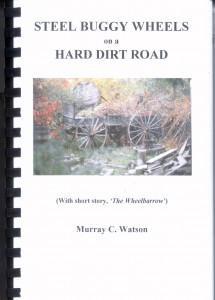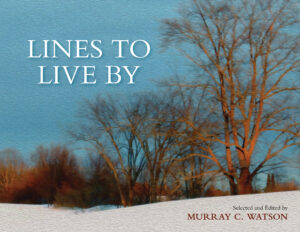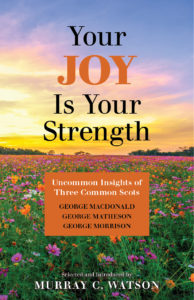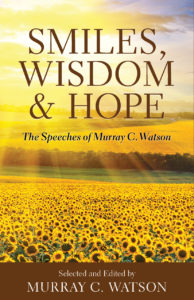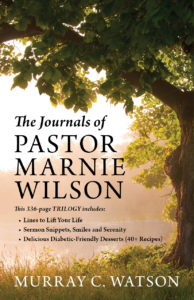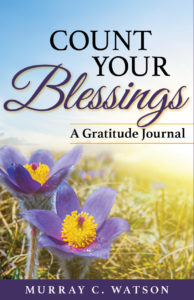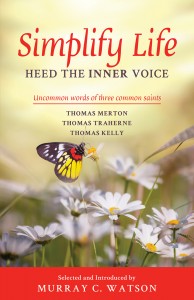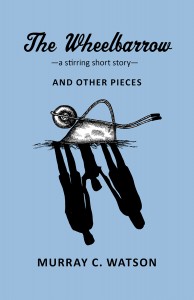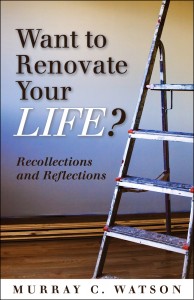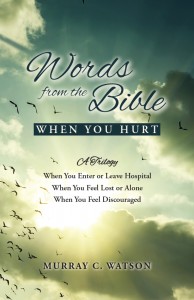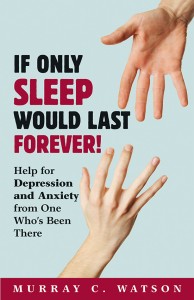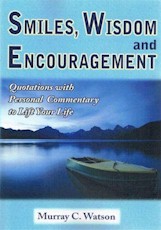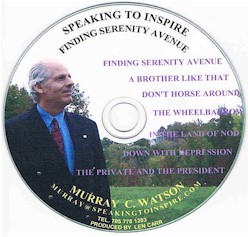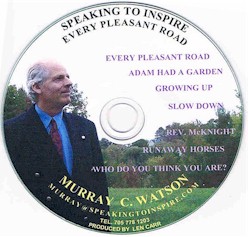On My Last Speech (or I Feel Better When I Give Something Away)
Someone asked me yesterday, “Well, how did your speech go?” She was referring to my speech — ‘Adam Had a Garden’ — presented to The Warkworth Community Service Club on Thursday last. In my response, I mentioned three individuals whose words were fresh in my mind.
The first person whose words left an impression on me came up to me shortly after I had delivered the speech. She asked me if I remembered her. I had to admit I did not. I’m finding people I haven’t seen for some time are looking older (myself excepted). She reminded me she had attended a reading club I had hosted at my farm in 2003 and that her name was Carol. But what struck me was what Carol confided to me. It had nothing to do with the humorous speech I had just delivered. She said she had fallen into a bad bout of depression, she found my book at the bookstore in Havelock (Cottage Country Books), and that it had really helped her.
The second person whose words touched me was Jan Wood. She is the one who shot my 11 speech introductions and uploaded them to my YouTube channel. At the last minute, I asked if she could shoot my speech in Warkworth. No, only because she was giving an on-line seminar that evening. But she would loan me her camera. (And a kind man at the club by the name of Cullen set it up and took charge of the shooting. Thank you, Cullen.) When I returned the camera the next day, Jan said to me she didn’t mind admitting to me that she’d had a hard time the last couple months [she had lost a family member], because I knew what depression was all about. (She was referring to the fact that, as I admit in my book and in my speeches, I was admitted in 1993 to a Toronto hospital under the care of a psychiatrist, was prescribed four strong drugs, and, among other problems, ended up with short-term brain memory damage.) Then she said she had picked up my book on depression the other day, had finished reading it the same day, and that it had helped her. Then she said, “You do important stuff, and I want to help you get it out there.”
The third person, whose words I remember, was club memberJohn Belton who was in charge of introducing me to the audience. In a conversation earlier in the week, he had, in referring to members of the club, used the expression “Vitamin V — for volunteering.” I hadn’t heard this one before, quoted it in my speech, and consider it a masterful metaphor, whoever came up with it. In my speech, I said that when my daughter was eight years old, I had heard her say to her brother in the yard, “You know, I feel better when I give something away.” In my speech, I told the 75 club members and guests that I believe that in life there is a bounce-back. That what I give to others — good or bad — I effectively give to myself.
What do I see in common among these three people? They’re on the wavelength of giving. John saw his fellow club members as volunteering to help. Although she couldn’t attend the dinner meeting in person, Jan gave me the use of her camera to support my calling. Carol effectively came back and gave me a ‘thank you’ for researching and writing my book on depression that ended up helping her.
To me, it seemed somehow ironic that after a speech intended to supply more smiles than wisdom, most of the feedback I received was essentially “Thank you, Murray, for writing your book on depression.” Ironic or not, I’m glad that in my speech (‘Adam Had a Garden’) I did make one reference to my own experience of depression. It reminds me of the words of a student at Norwood District High School after my speech on the link between depression and teenage suicide — “It wasn’t a speech by someone who didn’t know what it’s actually like to be depressed…and how to fix it.”
I may not know exactly how you feel about giving help to others, but I do know how Jan and Carol feel about the help they reported receiving. And I know how I feel when someone gives me a ‘thank you’, or buys one of my CDs or books for someone they know is struggling, or engages me to make a speech. And I know how I feel when I try, in my books and speeches, to give away smiles, wisdom and encouragement. I feel better when I give something away.
____________________________________________________________________________________________________________________________
The particular book referred to above is If Only Sleep Would Last Forever: Help for Depression and Anxiety from One Who’s Been There. In my books and speeches, my intention is to share smiles, wisdom and encouragement — to lift your life. If I can help you by sending you a copy of this book, or making a speech to one of your groups (schools, churches, service clubs, libraries), please contact me.
